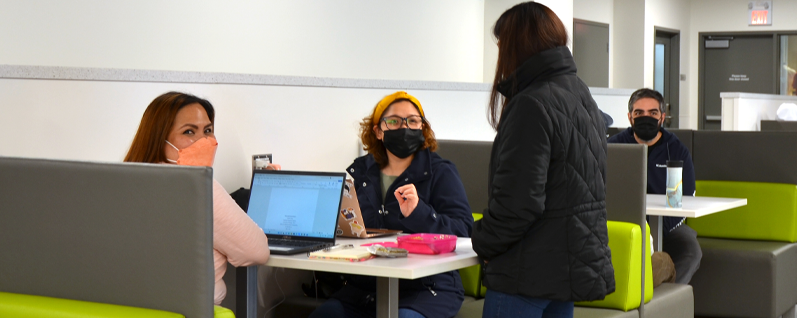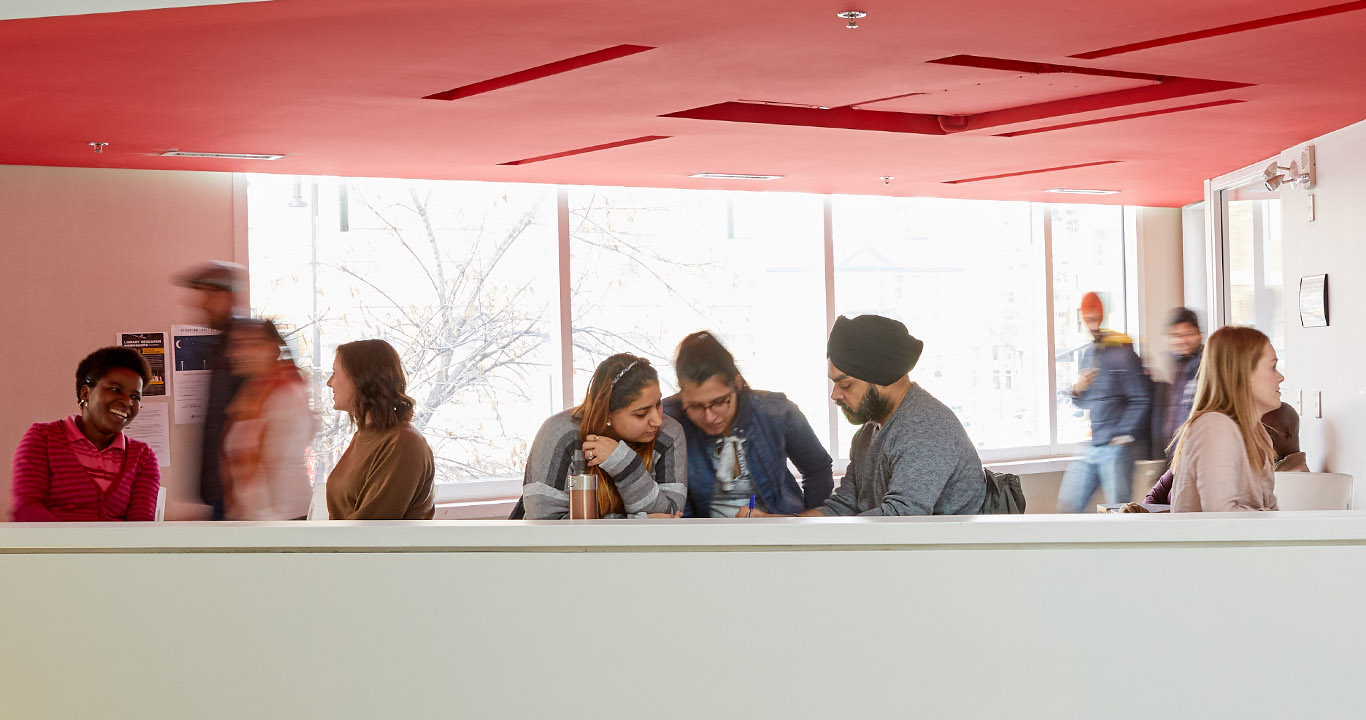-
Future Students
-
Admissions
Programs
Programs for Domestic Students
Courses
-
-
Current Students
-
Part Time
Student Logins
Student Logins
-
-
International Students
-
About Pace
-
About Pace
-
Top 3 ways to make the most of your educational experience

The success of our students is at the heart of what we do at UWinnipeg PACE. We’ve been nurturing minds and advancing careers with high quality, dynamic, and innovative programs over the past half-century. During this time, we’ve seen the key to success both inside and outside of the classroom is getting involved and being engaged in your university community.
This is backed up by a 2018 white paper by Challenge Success, a non-profit organization affiliated with the Stanford University Graduate School of Education, that looked at factors that contribute to students success at universities.
Their team of researchers found one unifying theme on student outcomes, “the students who benefit the most from college are those who are most engaged in their academics and campus communities, taking advantage of the opportunities and resources their particular institution provides. Engagement is the key.”
Wondering how to make the most out of your time at PACE? We made a list of the top three things that consistently contribute of the success of our students after they leave our classrooms: getting involved in extra-curricular activities, finding a mentor, and taking part in internships. These also happen to be among the six ingredients that a 2014 Gallup-Purdue study found to have a significant impact on how fulfilled employees feel at work and whether they are thriving in life after their studies.
1. Get Involved in Extra-Curricular Activities
Our first key to the success of our students creating a framework with a wealth of extra-curricular activities for students to get involved.
For those students studying close to home, you may be able to build on activities you’re already involved in. For students pursuing an education on other side of the world, getting involved with others outside of the classroom helps you succeed in your new community. It might sound counter-intuitive to focus on beyond the four walls of your classroom, but getting involved in activities organized after class, at lunch, or completely outside of the framework of school can go a long way to building meaningful relationships that last after your program is over.
Whether it’s taking advantage of activities organized by your student life committee or being a student representative of the industry organization in your field of study, there are lots of ways to get involved in both your campus community, as well as the broader community.
“When you first come to Winnipeg I think the biggest challenge that you don’t really know people.,” says Vicky Ordonez, a Project Management Diploma student who hails from Ecuador. “When we first started [the program] I decided to become come involved because we were advised to get involved in opportunities related to our program for the purpose of networking, as well as finding a place where we could eventually get some references.”
Vicky landed a position as Associate Director in the Manitoba chapter of Project Management Institute, PMI.
“I believe it was the best decision I made. I feel that through this I open myself to other opportunities that I wouldn’t have if I didn’t take on these activities,” says Vicky, who also volunteers at events organized by PACE’s Student Life Committee when she can.
Volunteering at local non-profits, attending networking events, campus sporting events, or organizing study groups with classmates is another way to get involved outside of class.
“Sometimes you can look [getting involved] like, oh additional chores to do, but I don’t see it that way” says Eyitayo Adesi, or AJ for short, a Human Resource Management Diploma student at UWinnipeg PACE, who is involved on the Sports & Health Subcommittee of the Student Life Committee. “It’s another way to zone out from studying and do something different and then when you come back to studying, you’re more relaxed and refreshed. And it’s an opportunity to hang out with fellow students in an informal setting.
2. Participate in Internship
The next key to the success of our students is the opportunity to participate in an industry-aligned internship. The Challenge Success white paper mentioned above says that schools which provide ample opportunities for student to engage deeply in learning and their campus community offer the key to positive post-graduation outcomes. Included in these opportunities are the chance to “participate in internships that allow them to apply what they learn in the classroom to real life settings.”
While hands-on learning and practical assignments that mimic real-world work experiences, being able to test those skills in the workforce through internship placements relevant to their new field is an invaluable opportunity for students as they complete their studies.
‘There’s a difference between being ready to work in an industry and that industry recognizing that you’re ready to work,” says Amy Palmquist, who after completing a BA majoring in Rhetoric, decided to earn her PR, Marketing, and Strategic Communication Management Certificate at PACE in 2014 to get the practical skills she needed to break into the communication field..
“I believed this program would pave the way for dynamic opportunities and I was right. Following my communications internship for the Winnipeg Blue Bombers, I was offered a position on the Grey Cup Festival team as the Festival Events and Operations Assistant,” says Amy, who has since gone on to build her career in the field and is currently the Marketing and Communications Specialist at IDC Communications & Cell Mechanics.
3. Find a Mentor
The last key to the success of our students is mentorship.
A 2018 Strada-Gallup Alumni Survey, underscores the importance of mentorship to successful university experiences. The report says that students who have a mentor during their studies demonstrate greater academic achievement and career development, building on previous Gallup’s research which linked meaningful mentor relationships during university with positive long-term outcomes for alumni after graduating — including higher well-being and engagement in the workplace.
So we can’t think of a good reason NOT to find yourself a mentor— whether it be an instructor in your program, an internship supervisor, someone you’ve meet at a networking event or otherwise, or through a formal mentorship program at your institution. At PACE, our formal mentorship program connects current students who are nearing program completion. with alumni and industry professionals. Our students also build meaningful mentorship relationships with instructors on their own sometimes.
“One of my instructors also became my mentor,” says Tanya Penner, who earned her PR, Marketing & Strategic Communication Diploma in 2017. “Her guidance has helped me a great deal in my professional development and driven me to accomplish more goals in one year than I ever thought possible. It’s really important to surround yourself with people who believe in your abilities while completing this program, and she gave me that support.”
As a mentee, you can benefit greatly from the wisdom and knowledge of industry professionals and or alumni of your school as they share their advice and insights with you. Having a sounding board or someone to offer a new perspective can be invaluable as you begin to plan your career. A mentor can help you practice career-management skills, develop both personally and professionally, and be a positive role model for you.
Engagement is Key
Overall success both during and after your programs is a combination of many factors, but at the heart of them all is engagement. We’ve boiled it down to three key experiences that are enable our students to flourish after graduation: getting involved in extra-curricular opportunities, developing supportive relationships with instructors and mentors, and having opportunities to put skills to the test in a real-world experience through internships.






